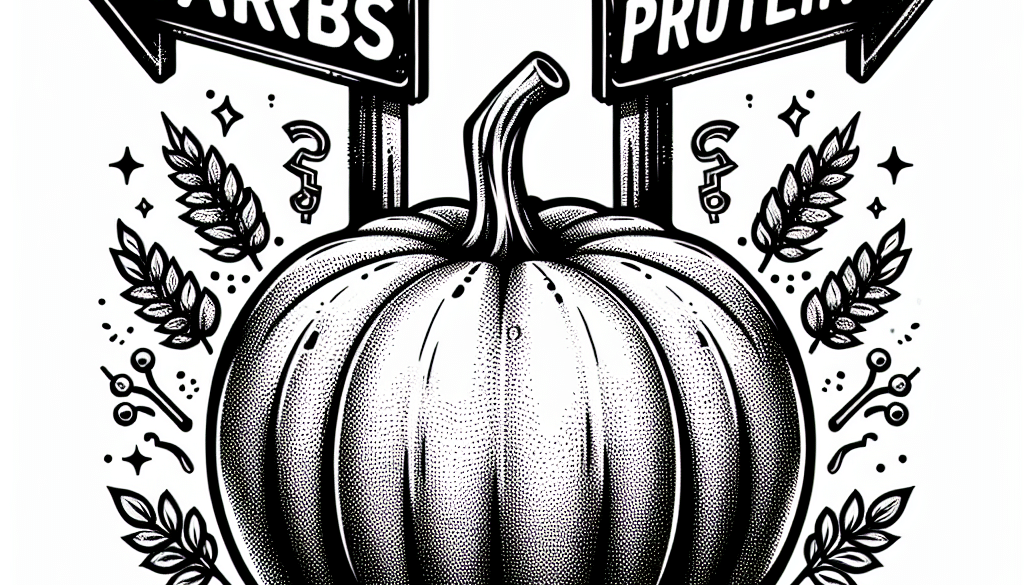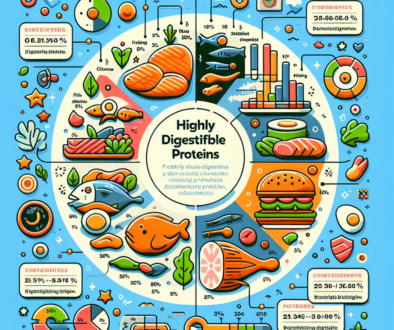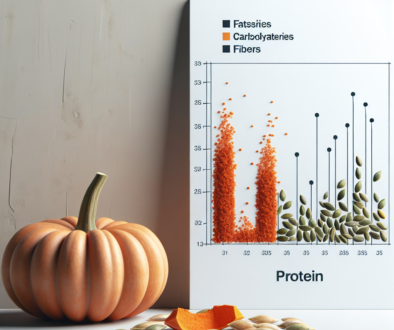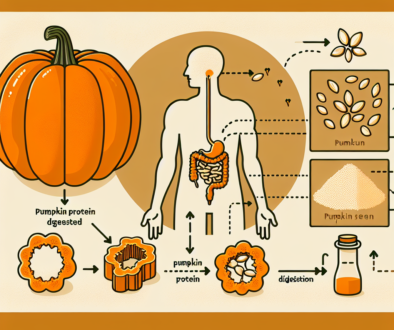Is Pumpkin A Carb Or Protein?
-
Table of Contents
- Pumpkin: A Carb or Protein Powerhouse?
- Understanding the Nutritional Profile of Pumpkin
- Carbohydrates in Pumpkin
- Protein Content in Pumpkin
- Fats and Other Nutrients in Pumpkin
- Health Benefits of Pumpkin
- Pumpkin Seeds: A Hidden Source of Protein
- Incorporating Pumpkin and Pumpkin Seeds into Your Diet
- Examples of Pumpkin in Meals:
- Examples of Pumpkin Seeds in Meals:
- Conclusion: Balancing Carbs and Protein with Pumpkin
- Discover ETprotein’s Pumpkin Seed Protein Products
Pumpkin: A Carb or Protein Powerhouse?
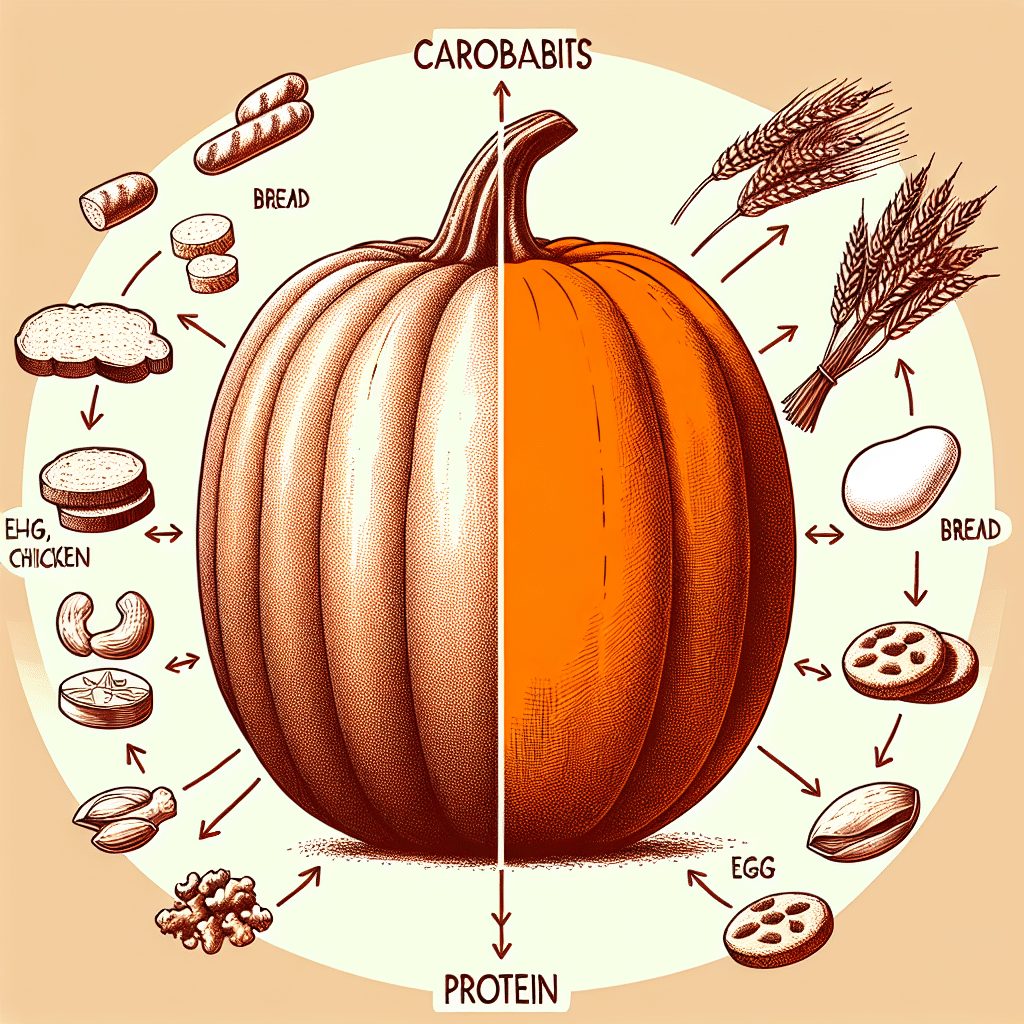
When it comes to understanding the nutritional profile of pumpkin, many people find themselves pondering whether this popular gourd is a carbohydrate or a protein source. This article delves into the nutritional composition of pumpkin, its health benefits, and how it fits into various dietary patterns. We will also explore how pumpkin seeds, often overlooked, are a significant source of protein and how they can be incorporated into a balanced diet.
Understanding the Nutritional Profile of Pumpkin
Pumpkin is a versatile food that is often celebrated in the fall but is available year-round in canned or fresh forms. It is a member of the Cucurbitaceae family, which includes squash and cucumbers. To understand whether pumpkin is a carb or protein, we must look at its macronutrient content.
Carbohydrates in Pumpkin
Pumpkin is primarily composed of carbohydrates. It contains both simple sugars and complex carbohydrates, which include dietary fiber. The carbohydrate content in pumpkin provides a quick source of energy, while the fiber aids in digestion and promotes a feeling of fullness.
- One cup of cooked, mashed pumpkin contains approximately 12 grams of carbohydrates.
- Out of these, about 3 grams are dietary fiber.
- The remaining are a mix of starches and natural sugars.
Protein Content in Pumpkin
While pumpkin does contain protein, it is not as significant as its carbohydrate content. Protein is essential for building and repairing tissues, and while pumpkin provides some of this macronutrient, it should not be relied upon as a primary protein source.
- One cup of cooked, mashed pumpkin has just under 2 grams of protein.
Fats and Other Nutrients in Pumpkin
Pumpkin is low in fat, with less than 1 gram per cup of cooked pumpkin. However, it is rich in vitamins and minerals, particularly vitamin A, vitamin C, potassium, and smaller amounts of vitamin E, iron, and folate.
Health Benefits of Pumpkin
Pumpkin is not only delicious but also packed with health benefits, thanks to its nutrient-rich profile. Here are some of the key health benefits associated with consuming pumpkin:
- Rich in Antioxidants: Pumpkin is high in beta-carotene, which the body converts into vitamin A. This nutrient acts as a powerful antioxidant that can help protect the body against free radicals.
- Heart Health: The fiber, potassium, and vitamin C content in pumpkin all support heart health.
- Weight Management: Pumpkin is low in calories and high in fiber, which can help you feel fuller for longer, aiding in weight management.
- Eye Health: The vitamin A in pumpkin is vital for eye health and can help prevent the decline of eyesight that comes with age.
Pumpkin Seeds: A Hidden Source of Protein
While the flesh of the pumpkin is low in protein, pumpkin seeds are a different story. These seeds are a nutritional powerhouse and an excellent source of plant-based protein.
- One ounce (about 28 grams) of pumpkin seeds contains roughly 7 grams of protein.
- Pumpkin seeds are also rich in healthy fats, particularly omega-6 fatty acids.
- They contain a variety of nutrients including magnesium, phosphorus, zinc, and iron.
Pumpkin seeds can be enjoyed raw or roasted and make for a nutritious snack or a crunchy addition to salads, cereals, and baked goods.
Incorporating Pumpkin and Pumpkin Seeds into Your Diet
Given its carbohydrate content, pumpkin can be included in the diet as a source of complex carbohydrates and fiber. It can be roasted, steamed, or pureed and used in a variety of dishes such as soups, stews, pies, and smoothies. Pumpkin seeds can be added to your diet as a protein-rich snack or as a topping to increase the protein content of meals.
Examples of Pumpkin in Meals:
- Pumpkin soup with a dollop of Greek yogurt for added protein.
- Pumpkin puree added to oatmeal or pancake batter.
- Roasted pumpkin as a side dish to a lean protein source like chicken or fish.
Examples of Pumpkin Seeds in Meals:
- Mixed into yogurt or cottage cheese for a protein and crunch boost.
- Added to homemade granola or trail mix.
- Sprinkled over salads or incorporated into protein bars.
Conclusion: Balancing Carbs and Protein with Pumpkin
In conclusion, pumpkin itself is primarily a carbohydrate source, rich in fiber and essential nutrients, but low in protein. However, its seeds offer a substantial amount of protein and can be a valuable addition to a balanced diet. Whether you’re looking to boost your intake of vitamins and minerals or seeking plant-based protein options, pumpkin and its seeds can be a nutritious and versatile choice.
Discover ETprotein’s Pumpkin Seed Protein Products
If you’re interested in incorporating more plant-based proteins into your diet, ETprotein offers a range of high-quality protein products, including pumpkin seed protein. Their products are organic, non-GMO, and allergen-free, making them a great addition to any health-conscious diet.
ETprotein’s pumpkin seed protein is characterized by its neutral taste and high purity, making it an excellent ingredient for shakes, smoothies, and other recipes where you want to boost the protein content without altering the flavor profile.
For those looking to explore the benefits of pumpkin seed protein and other plant-based proteins, ETprotein is a reliable source that caters to various industries, including nutraceuticals, sports nutrition, and more. To learn more about their offerings or to sample their products, reach out to ETprotein today.
About ETprotein:
ETprotein, a reputable protein and L-(+)-Ergothioneine (EGT) Chinese factory manufacturer and supplier, is renowned for producing, stocking, exporting, and delivering the highest quality organic bulk vegan proteins and L-(+)-Ergothioneine. They include Organic rice protein, clear rice protein, pea protein, clear pea protein, watermelon seed protein, pumpkin seed protein, sunflower seed protein, mung bean protein, peanut protein, and L-(+)-Ergothioneine EGT Pharmaceutical grade, L-(+)-Ergothioneine EGT food grade, L-(+)-Ergothioneine EGT cosmetic grade, L-(+)-Ergothioneine EGT reference grade and L-(+)-Ergothioneine EGT standard. Their offerings, characterized by a neutral taste, non-GMO, allergen-free attributes, with L-(+)-Ergothioneine purity over 98%, 99%, cater to a diverse range of industries. They serve nutraceutical, pharmaceutical, cosmeceutical, veterinary, as well as food and beverage finished product distributors, traders, and manufacturers across Europe, USA, Canada, Australia, Thailand, Japan, Korea, Brazil, and Chile, among others.
ETprotein specialization includes exporting and delivering tailor-made protein powder and finished nutritional supplements. Their extensive product range covers sectors like Food and Beverage, Sports Nutrition, Weight Management, Dietary Supplements, Health and Wellness Products, and Infant Formula, ensuring comprehensive solutions to meet all your protein needs.
As a trusted company by leading global food and beverage brands and Fortune 500 companies, ETprotein reinforces China’s reputation in the global arena. For more information or to sample their products, please contact them and email sales(at)ETprotein.com today.

